9 start with O start with O
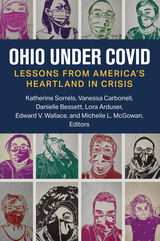
In early March of 2020, Americans watched with uncertain terror as the novel coronavirus pandemic unfolded. One week later, Ohio announced its first confirmed cases. Just one year later, the state had over a million cases and 18,000 Ohioans had died. What happened in that first pandemic year is not only a story of a public health disaster, but also a story of social disparities and moral dilemmas, of lives and livelihoods turned upside down, and of institutions and safety nets stretched to their limits.
Ohio under COVID tells the human story of COVID in Ohio, America’s bellwether state. Scholars and practitioners examine the pandemic response from multiple angles, and contributors from numerous walks of life offer moving first-person reflections. Two themes emerge again and again: how the pandemic revealed a deep tension between individual autonomy and the collective good, and how it exacerbated social inequalities in a state divided along social, economic, and political lines. Chapters address topics such as mask mandates, ableism, prisons, food insecurity, access to reproductive health care, and the need for more Black doctors. The book concludes with an interview with Dr. Amy Acton, the state’s top public health official at the time COVID hit Ohio. Ohio under COVID captures the devastating impact of the pandemic, both in the public discord it has unearthed and in the unfair burdens it has placed on the groups least equipped to bear them.
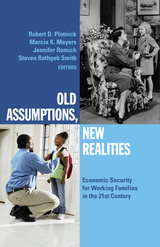
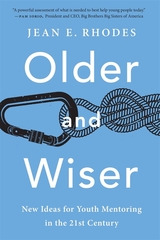
Youth mentoring programs must change in order to become truly effective. The world’s leading expert shows how.
Youth mentoring is among the most popular forms of volunteering in the world. But does it work? Does mentoring actually help young people succeed? In Older and Wiser, mentoring expert Jean Rhodes draws on more than thirty years of empirical research to survey the state of the field. Her conclusion is sobering: there is little evidence that most programs—even renowned, trusted, and long-established ones—are effective. But there is also much reason for hope.
Mentoring programs, Rhodes writes, do not focus on what young people need. Organizations typically prioritize building emotional bonds between mentors and mentees. But research makes clear that effective programs emphasize the development of specific social, emotional, and intellectual skills. Most mentoring programs are poorly suited to this effort because they rely overwhelmingly on volunteers, who rarely have the training necessary to teach these skills to young people. Moreover, the one-size-fits-all models of major mentoring organizations struggle to deal with the diverse backgrounds of mentees, the psychological effects of poverty on children, and increasingly hard limits to upward mobility in an unequal world.
Rhodes doesn’t think we should give up on mentoring—far from it. She shows that evidence-based approaches can in fact create meaningful change in young people’s lives. She also recommends encouraging “organic” mentorship opportunities—in schools, youth sports leagues, and community organizations.

Winner of the Eleanor Maccoby Book Award
“This engaging and well-written book is a significant advance in our understanding of when and how mentoring matters…[It] lays the foundations for an approach to mentoring that is both rigorous and rich in new ideas.”
—Robert D. Putnam, author of Our Kids: The American Dream in Crisis
“Rhodes forces us to slam the brakes on ineffective practices and improve an industry that is devoted to the potential of our nation’s children…The author’s concrete recommendations will create new pathways to opportunity for youth in greatest need.”
—Michael D. Smith, Executive Director, My Brother’s Keeper Alliance
“A powerful assessment of what is needed to best help young people today.”
—Pam Iorio, President and CEO, Big Brothers Big Sisters of America
Youth mentoring is one of the most popular forms of volunteering in the world today, but does it work? Drawing on over thirty years of research and her own experience in the field, Jean Rhodes reveals that most mentoring programs fail to deliver what young people actually need. Many prioritize building emotional bonds between mentors and mentees. But research shows that effective programs go far beyond this, developing specific social, emotional, and intellectual skills.
Most mentoring programs rely on volunteers, who rarely have the training to teach these skills. Their one-size-fits-all models struggle to meet the diverse needs of mentees, and rarely take account of the psychological effects of poverty on children. Rhodes doesn’t think we should give up on mentoring—far from it. Instead, she recommends “organic” mentorship opportunities—in schools, youth sports leagues, and community organizations—and shares specific approaches that can spark meaningful change in young people’s lives.
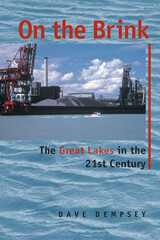
As one of the world’s great natural treasures, the Great Lakes have also served in recent decades as an early warning system for many emerging environmental problems. In the early twenty-first century, as the Lakes face unprecedented challenges, we need to revisit both the wonder of the Lakes and the perils plaguing them, and to take action to protect this majestic ecosystem.
Dave Dempsey weaves the natural character and phenomena of the Great Lakes and stories of the schemes, calamities, and unusual human residents of the Basin with the history of their environmental exploitation and recovery. Contrasting the incomparable beauty and complexity of the Lakes, and the poetry, folklore, and citizen action they have inspired, with the disasters that short-sighted human folly has inflicted on the ecosystem, Dempsey makes this history both engaging and relevant to today’s debates and decisions.
Underlying the neglectful treatment of the Lakes are two irreconcilable and faulty human assumptions: that the Lakes are a system so big that human beings cannot do great harm to it, and that the Lakes are a resource that can be bent to the will of humankind. Dempsey finds evidence that, despite great changes in the laws governing the Lakes and public attitudes toward them in the last fifty years, government policy and institutions are still dominated by these dangerous attitudes.
A central theme of On the Brink is that citizens, who have displayed an increasing sense of commitment to the Lakes and a growing sense of place, must challenge their leaders to reform Great Lakes institutions. While everything from large-scale water exports to global climate change looms in the future of the Lakes, single-purpose solutions do not suffice—no more than a Band- aid would on a gaping wound. Dempsey shows that it is necessary to create a governing system that reflects the realities of life “on the ground” in communities and that taps into the passion and determination of citizens to protect these treasures.
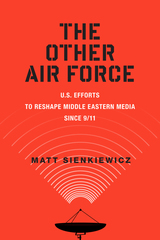
As it seeks to win the hearts and minds of citizens in the Muslim world, the United States has poured millions of dollars into local television and radio programming, hoping to generate pro-American currents on Middle Eastern airwaves. However, as this fascinating new book shows, the Middle Eastern media producers who rely on these funds are hardly puppets on an American string, but instead contribute their own political and creative agendas while working within U.S. restrictions.
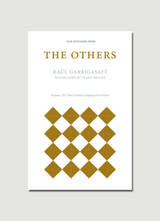

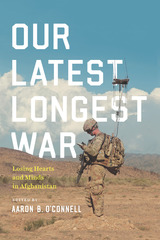
America’s goals in Afghanistan were lofty to begin with: dismantle al Qaeda, remove the Taliban from power, remake the country into a democracy. But not only did the mission come completely unmoored from reality, the United States wasted billions of dollars, and thousands of lives were lost. Our Latest Longest War is a chronicle of how, why, and in what ways the war in Afghanistan failed. Edited by historian and Marine lieutenant colonel Aaron B. O’Connell, the essays collected here represent nine different perspectives on the war—all from veterans of the conflict, both American and Afghan. Together, they paint a picture of a war in which problems of culture and an unbridgeable rural-urban divide derailed nearly every field of endeavor. The authors also draw troubling parallels to the Vietnam War, arguing that deep-running ideological currents in American life explain why the US government has repeatedly used armed nation-building to try to transform failing states into modern, liberal democracies. In Afghanistan, as in Vietnam, this created a dramatic mismatch of means and ends that neither money, technology, nor the force of arms could overcome.
The war in Afghanistan has been the longest in US history, and in many ways, the most confounding. Few who fought in it think it has been worthwhile. These are difficult topics for any American or Afghan to consider, especially those who lost friends or family in it. This sobering history—written by the very people who have been fighting the war—is impossible to ignore.
READERS
Browse our collection.
PUBLISHERS
See BiblioVault's publisher services.
STUDENT SERVICES
Files for college accessibility offices.
UChicago Accessibility Resources
home | accessibility | search | about | contact us
BiblioVault ® 2001 - 2024
The University of Chicago Press









